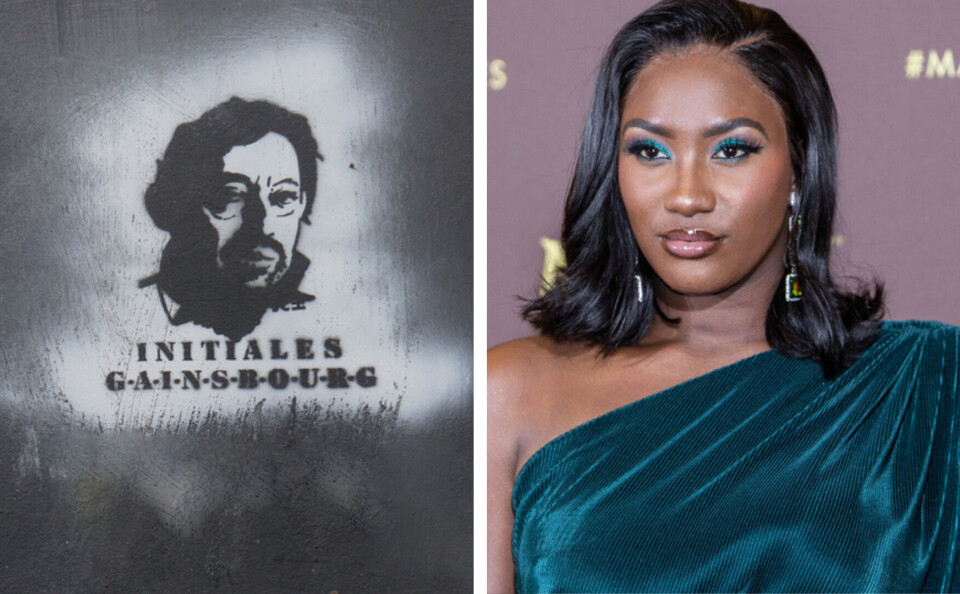-
Rugby vocabulary to know if watching the Six Nations in France
From un tampon to une cathédrale, understand the meaning of key French rugby terms
-
How joining a choir in rural France helped me build a new life after retirement
Connexion reader Abigail Gammie explains how singing offered a fun way to make friends – and learn the language
-
Duck Cold! Four French phrases to use when it is freezing outside
We remind you of French expressions to use to describe the drop in temperature
10 French songs that have sparked debate over the years
As one of France’s all-time hits is criticised for its right-wing tone, we look at other contested songs

Feelings continue to run high in France after criticism of an iconic song by one of the country’s best-loved artists.
Singer Juliette Armanet, 39, took a swipe at Les lacs du Connemara by 76-year-old Michel Sardo earlier this month, calling it right-wing.
She added that the song, first released in 1981, was “low” and criticised it for having a “boy scout and sectarian tone” in an interview with Tipik, a Belgian media outlet.
Responding to a question about which three songs would make her leave a party, she said: “Les lacs du Connemara, three times over. [The song is] right-wing. Nothing is okay about it.”
The track is regularly listed among France’s top 50 songs of all time and has sold 100 million copies worldwide, becoming a staple of student parties and weddings.
Ms Armanet’s comments caused a media furore and prompted much political debate. Commentators framed it as a clash between a ‘progressive’ Parisian artist catering to the upper-class and educated fringes and, in the case of Mr Sardou, a conservative who represents France’s traditions and core values.
But the incident is far from the only time a song or artist has ignited controversy in France. The Connexion lists some others.
Michel Sardou
Ms Armanet is not the first to have had misgivings about the political and social undertones of Michel Sardou’s work.
A 2018 article in Ouest-France questioned whether he was “un réac” (a reactionary) for frequently weighing in on sensitive subjects.
Je suis pour (I am in favour), for example, tells the story of a grieving father calling for the death penalty. It was released in 1976 at the height of debate over the future of capital punishment in France.
Meanwhile, Le temps des colonies (Colonial times) saw Mr Sardou accused of racism, misogyny and imperialism. Most radio stations refused to broadcast it.
Mr Sardou later said in an interview with Le Journal du Dimanche that he knew the lyrics would trigger reactions, but was curious to see what would happen if he released the track.
Rap and anti-French sentiment
Rap songs are frequently singled out for their language, ideology and supposed ‘anti-French sentiment’.
One of France’s best known rappers, Booba, has seen some of his lyrics – mainly from the 2002 song Le Bitume avec une plume – criticised as Francophobic by the conservative philosopher Alain Finkielkraut.
Médine, a French rapper of Algerian descent, is also regularly labelled as a ‘threat’ and has been accused of promoting Islamic ideologies, not least when he released a song called Bataclan two years after the Paris attacks of November 2015. In fact, only the title of the track was provocative. The lyrics talk about Médine’s childhood dream of producing at the Bataclan.
Serge Gainsbourg
Serge Gainsbourg’s provocative and often scandalous releases have long divided public opinion
Les Sucettes (Lollipops), which he wrote in 1966, featured lyrics with an oral sex double entendre although France Gall, who performed the song, insisted she was unaware of it at the time.
Meanwhile, Lemon Incest provoked a backlash for its suggestive music video depicting Serge Gainsbourg and his daughter Charlotte on a bed.
Another track, Aux armes et caetera, used the words of France’s national anthem over reggae tones, while Je t’aime, moi non plus was controversial for the ‘orgasmic’ sounds from Brigitte Bardot and Jane Birkin.
Aya Nakamura
Aya Nakamura, thought currently the most listened-to francophone artist, has been repeatedly criticised by French media of all political leanings for her use of made-up words, which appear to borrow from slang and African dialects.
The artist sold 560,000 copies of her second album Nakamura, and 200,000 copies of her third album Aya, which came out in the middle of the Covid lockdowns, but critics accuse her of ‘impoverishing’ the French language.
Made-up words include pookie (someone who can’t be trusted), djadja (a man who lies), tu dead ça (doing something very well) and catchana (a sex position).
Les Restos du coeur
French charity Restos du coeur sees artists unite under the collective ‘Les Enfoirés’ to release one song each year to raise funds for the cause (distributing food and hot meals to those in need)..
However, the 2015 track Toute la vie was criticised for featuring a dialogue between younger and older generations in which the former’s concerns about their future were apparently dismissed.
Addressing the controversy, songwriter Jean-Jacques Goldman told Le JDD in January 2023 that: “Les Enfoirés play the part of adults who too often shirk their responsibilities, but wish they could do better.
“The fact is, young people are holding us accountable. And that’s the least they can do.”
Related articles
These 10 songs can help you improve your French
Why Paris metro busking can be a career springboard for musicians
























